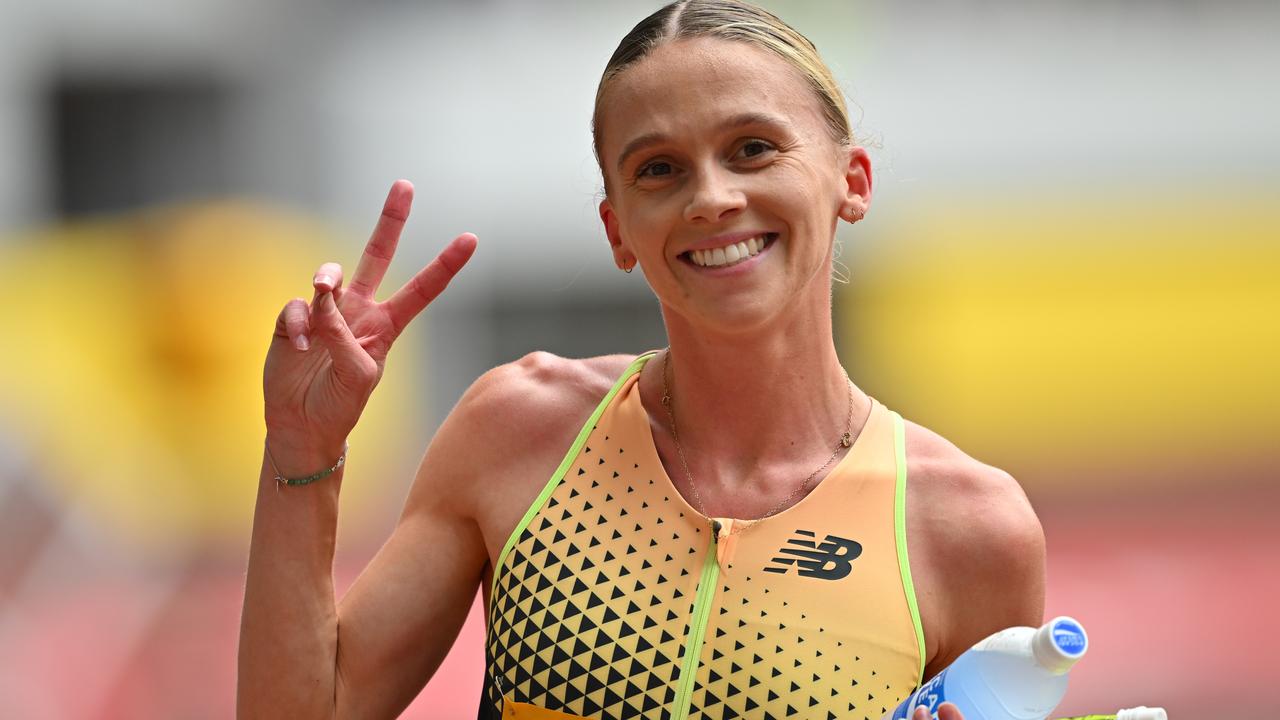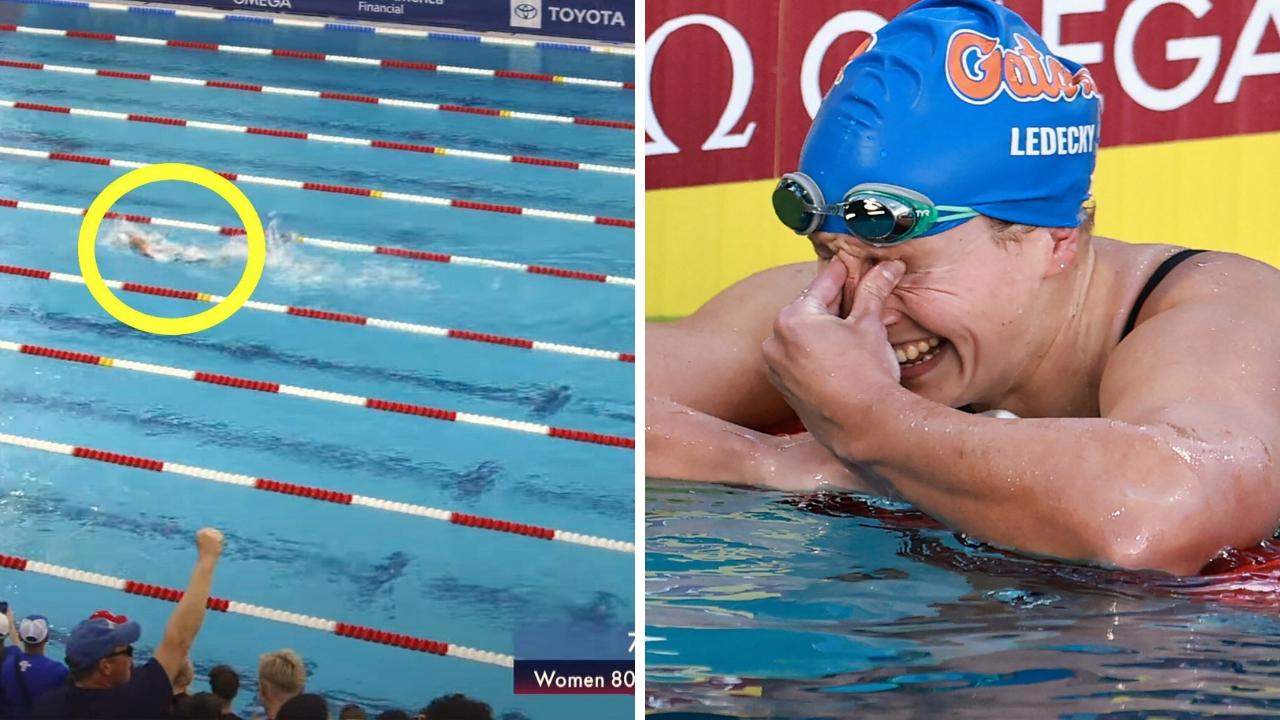What our Olympic athletes are doing to stay motivated for the postponed Tokyo games
From a surfing great biding her time at her home break to a sailor who counts himself as ‘one of the lucky ones’, Australia’s athletes are finding all sorts of ways to stay motivated during the coronavirus crisis.
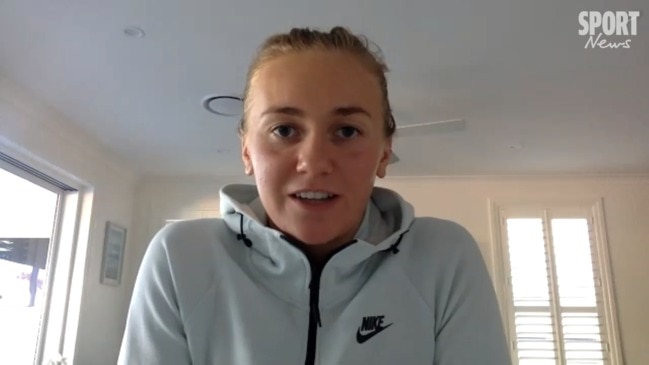
What happens when your Olympic dreams are put on hold?
Sometimes it’s through injury, illness or circumstance.
But no one could have predicted a worldwide pandemic would force the Tokyo 2020 games to be postponed for a year.
Kayo is your ticket to the best sport streaming Live & On-Demand. New to Kayo? Get your 14-day free trial & start streaming instantly >
So how do Australia’s best athletes stay fit and motivated for an event that might not even happen?
News Corp spoke to 12 of our medal chances to see hat they were doing during the COVID-19 restrictions.
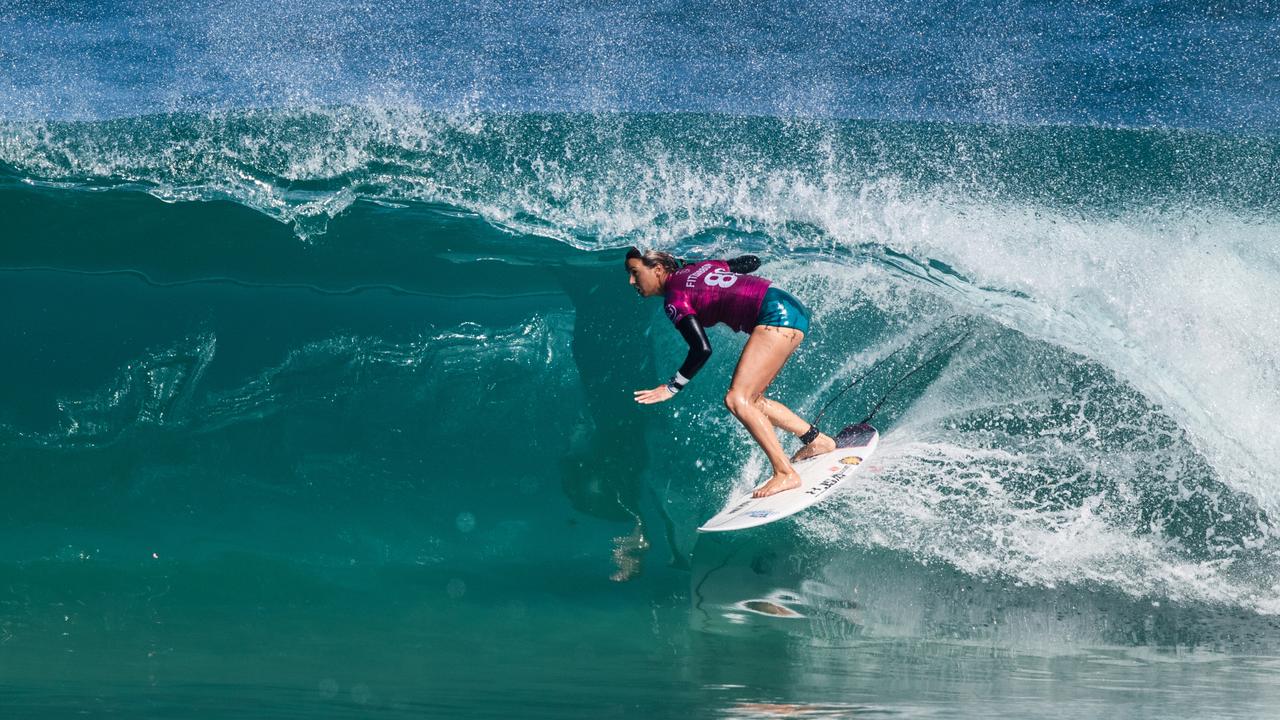
SILVER LINING FOR OPTIMISTIC SALLY
Ever since she was a little girl, Sally Fitzgibbons has dreamed of competing at the Olympics.
So what does waiting another 12-months matter?
If only it were that simple.
Because even for one of Australian sporting champions most optimistic, positive and bullish athletes, the torment of training every day without a finish line in sight, has been challenging.
“Your overall outlook feels a bit like; “I don’t exactly know what I’m aiming for? And is that going to happen?,’’ the world number five ranked surfer said.
“But then you realise you can’t buy into the stuff that you can’t control.
“It’s not easy, but you have to keep finding the motivation to keep turning up every day.’’
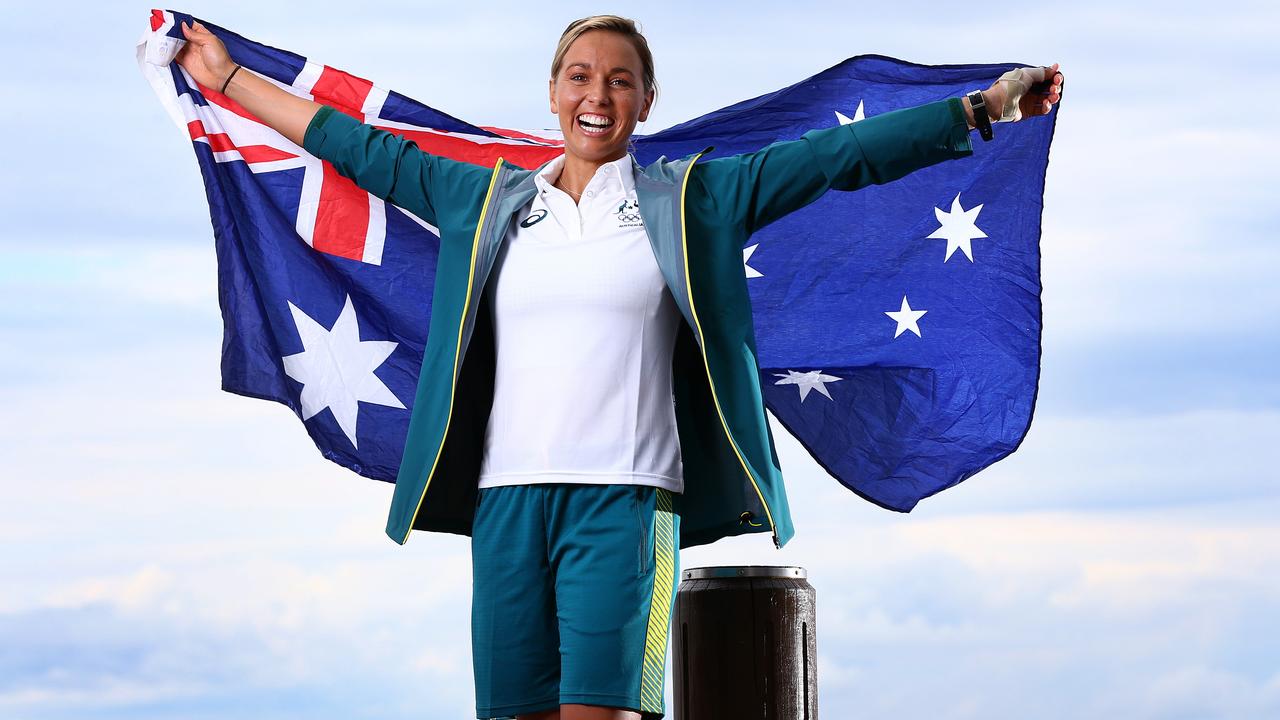
A gifted long-distance runner when she was in primary school, Fitzgibbons’ Olympic dream was to perform on the track – never considering that surfing would ever become an Olympic event.
So even on the toughest of days, the 29-year-old is focused and unrelenting in making certain she walks into the opening ceremony in 12-months time.
“The contrast is, I could be in Tokyo walking into the biggest sports party, alongside the Australian flag and thousands of athletes and spectators or I could be sitting here looking out at my home beach (Gerroa on the NSW south coast) with one person on the beach and realising that when it does come, I’ll be ready,’’ Fitzgibbons said.
“Every day, I’m working to be ready.
“There is another positive also, instead of being in Tokyo, I can be with my Mum for her birthday this weekend.
“And that’s something I haven’t been here to celebrate with her for 15-years.’’
Ever the optimist, is Fitzgibbons.
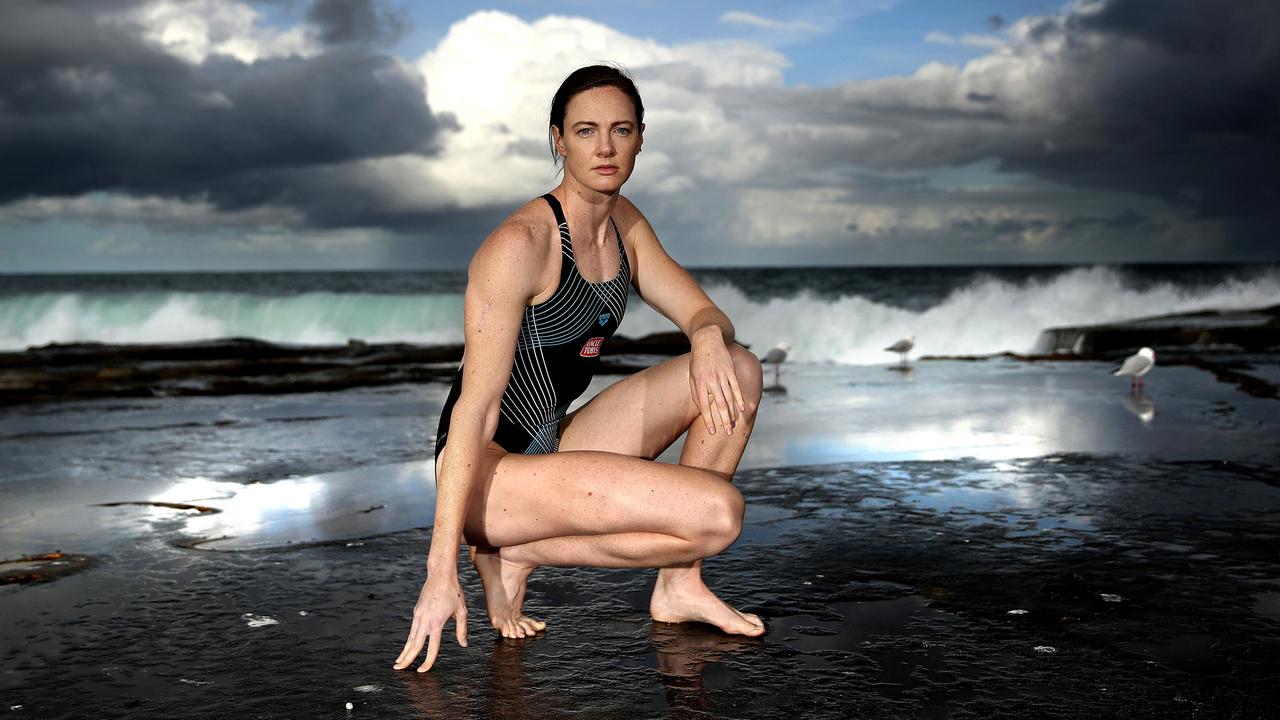
PHONE ALERTS MOTIVATE CATE
Cate Campbell’s heart breaks a little bit every time she wakes up and sees a notification on her mobile phone about what she would be doing in Tokyo right now.
The alerts are a cruel reminder of what could have been but she refuses to delete them because they’re helping to spur her on.
Friday’s notification will tell her the Opening Ceremony was due to take place but the swim queen isn’t going to let the moment pass by unnoticed, so has organised a mass Zoom call with hundreds of Australian Olympians from all sports.
The hour-long hook-up will happen on Friday night at the same time the ceremony would have been on, with Campbell swapping her cossies for questions as she takes on the role of quizmaster.
“It’s just a way to connect people and mark would have been a pretty special night for a lot of people, particularly some of the smaller sports might be feeling really despondent or left out,” she said.
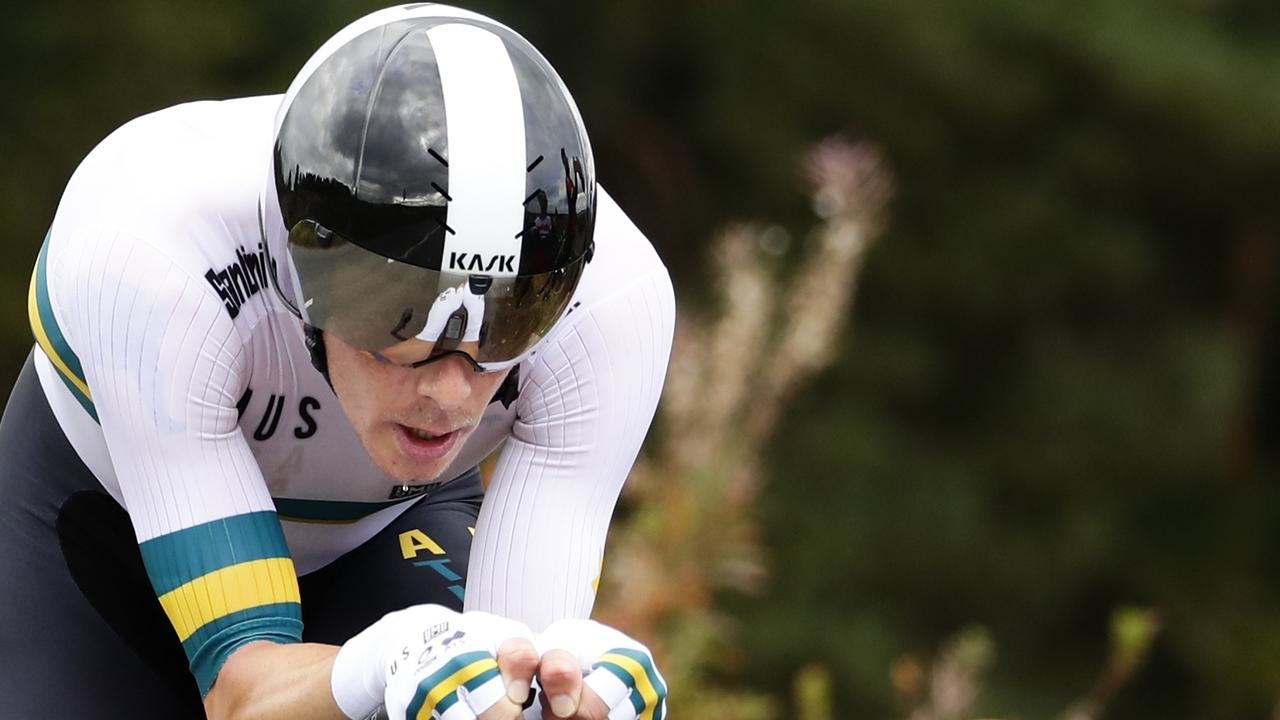
EXCITEMENT DROWNS OUT ANXIETY FOR CYCLE STAR
Cycling world champion Rohan Dennis spent the best part of three months riding on an indoor trainer at home in Spain during the COVID-19 lockdown.
But having finally returned to the roads his next step is returning to racing which will come with the Tour of Poland in August.
“There’s some anxiety about racing again but also some excitement, I haven’t been in the peloton for nearly 12 months apart from Tour Down Under,” he said.
“But I’m excited because I want to get back to doing my job and seeing where I’m at.
“Worlds (world championships) was always on the cards in September and the Giro d’Italia is 10-14 days after that so personally I’d love to win the opening prologue at the Giro then ride for Richard Carapaz after that.”
He says he is fully committed and motivated for Tokyo 2021.
“Yes, 100 per cent, at first it really annoyed me that we may not be doing it but then I took a step back and saw there are some positives to my preparation,” he said.
“I’ve just come to (Team) Ineos, it felt like things were a little bit rushed with getting used to everything, so giving myself 18 months to get everything dialled in will be god.
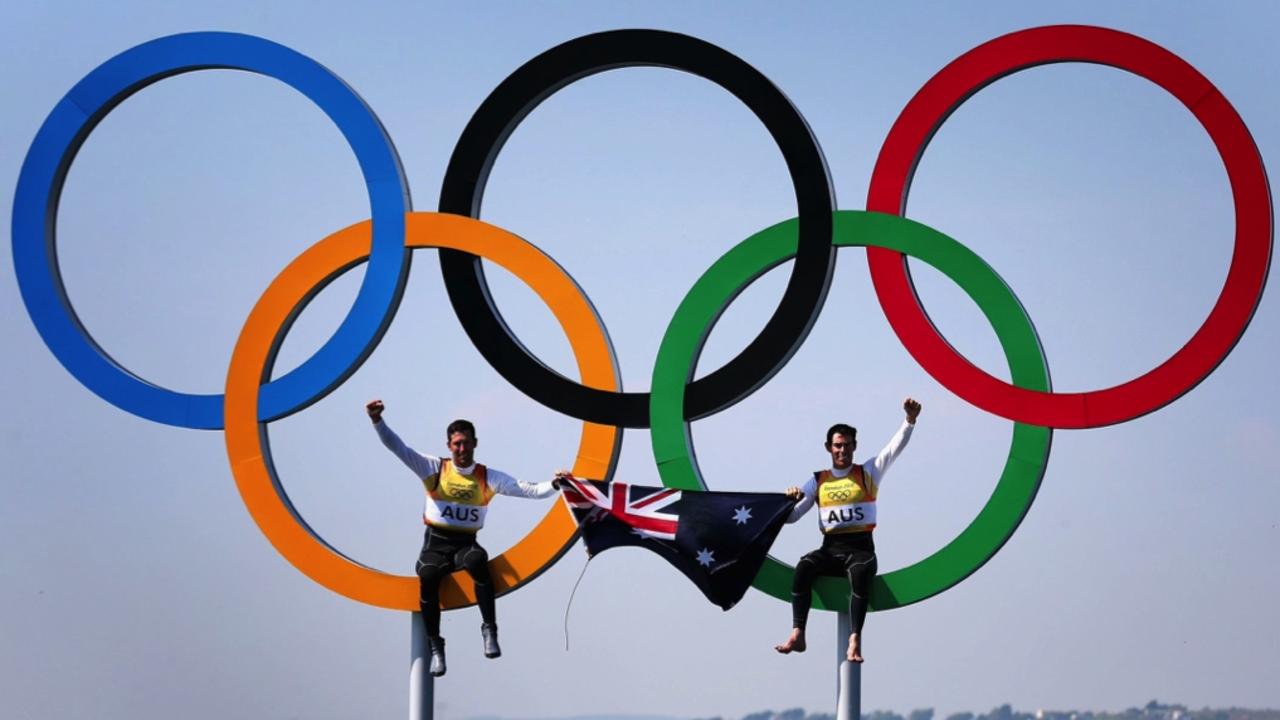
BORDER CLOSURE ROCKS SAIL PAIR
Never mind the boat — the last six months has been nothing but hurdles for Will Ryan and Mat Belcher.
The pair were training in Spain for the European season when coronavirus really took hold, meaning it was back home, albeit with a long wait to sleep in their own bed.
“We were preparing in the island of Palma,” Belcher said.
“Everything had been pretty well structured from 14 months out to be peaking at the right time … it’s been a bit of a reset.
“We came back and had to quarantine for two weeks, and my lease in Sydney had already expired, thinking I’d be away, so my sister and I started looking for a rental property in Sydney thinking we’d keep training, paid the deposit for six months and then the next day, the Olympics were postponed for a year.
“We lost our money from it, but managed to avoid renting for the next six months.”
Further hampering the men’s 470 team’s training plans has been the fact that Belcher lives in Queensland, where strict border measures mean Ryan cannot enter.
They usually train on the Gold Coast, but have been meeting in Coffs Harbour.
“It’s midway meeting point, so that’s been a good chance to get back on the water and feel like we’re somewhere between making progress and keeping our hand in,” Ryan said.
“Just trying to mentally stay motivated which is a challenge, as we’re drawn to competition and racing.
“We’re still one of the lucky ones.”
Ryan has been staying with his grandfather, 92, in Lake Macquarie and spending time with family that would have otherwise been missed.
“(Today) we’re doing a boat work day on his yacht,” he said.
“Which is fantastic and a really cool thing that I never would have gotten to do otherwise.”
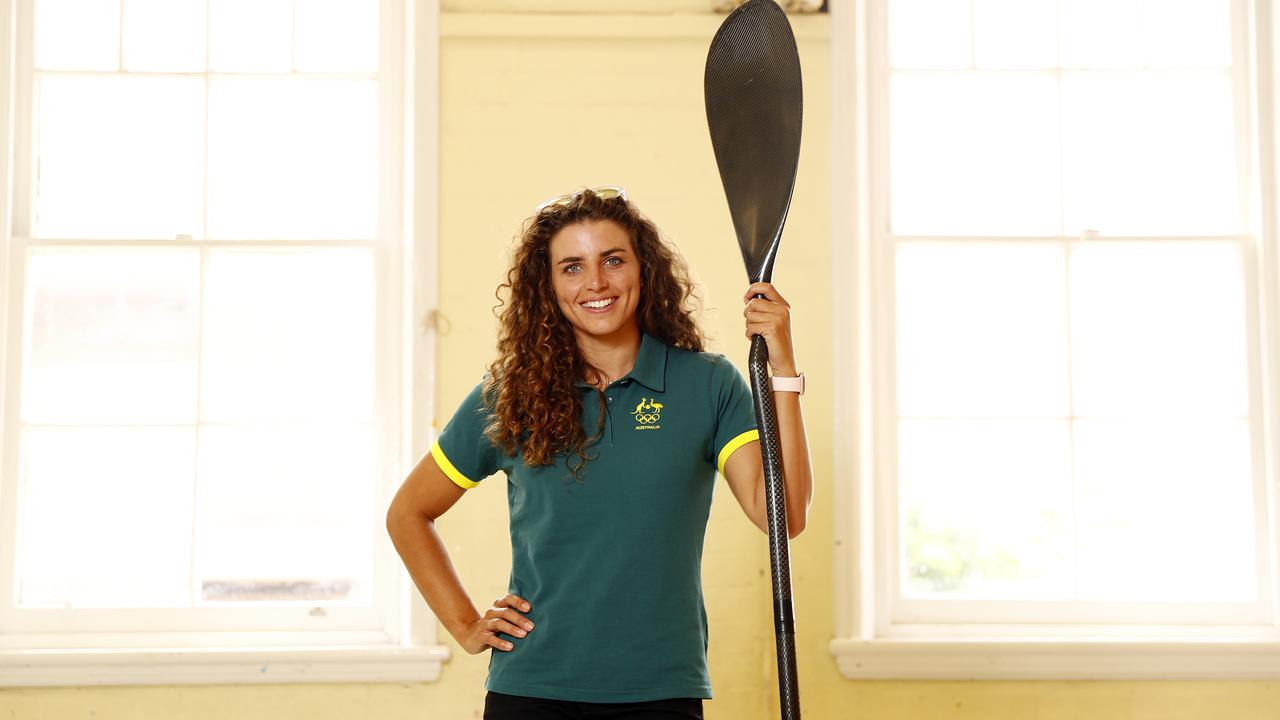
REMINDERS KEEP FOX FOCUSED
For two-time Olympic medallist Jessica Fox, the “jabs of disappointment” have appeared every time she looks down at her mobile phone.
Typed into her phone’s calendar remains the most special of dates, which she had spent the past four years counting down every day towards; ‘Leaving for Tokyo’, ‘Moving into the Olympic Village’ and the ‘Opening Ceremony’.
But even as the reality sets in that this weekend will be spent at her home in Penrith, in Sydney’s greater west, instead of the Tokyo village, Fox is already preparing herself for a hopeful games re-run in 2021.
“It’s funny because I haven’t deleted everything out of my calendar,’’ Fox, who won a bronze medal in the K1 event at the 2016 Rio Olympics, said.
“I kind of like seeing things pop up. “Last week it said ‘Leaving for Tokyo’ and just seeing these messages, were little jabs of disappointment.
“But at the same time, it was also exciting in a way to think about how I am going to feel this time next year?”
“I tried to project myself and use it as an exercise of visualisation or mental rehearsal, to try and put myself there, even though I’m not there.’’
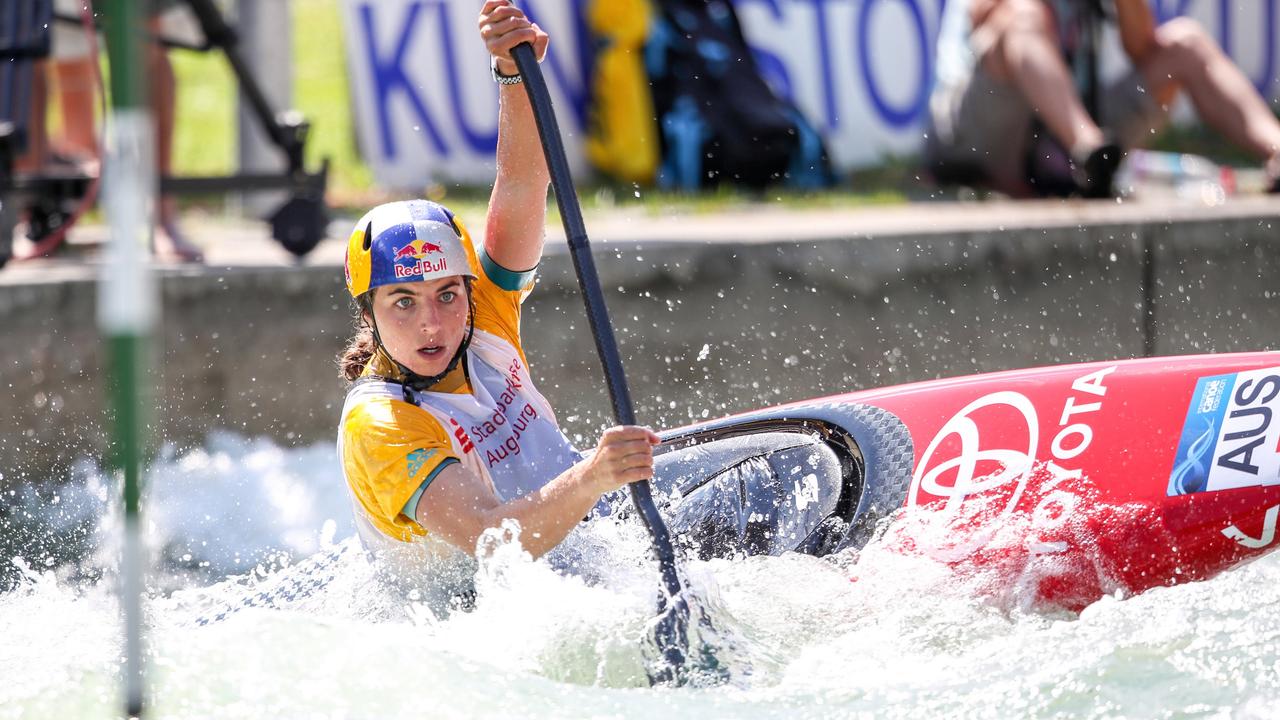
MORE OLYMPICS
Olympic Opening ceremonies: the good, bad and downright bizarre
Legendary swim coach Laurie Lawrence issues warning to Aussie Swimmers a year out from Tokyo Games
Tokyo Olympics: Owen Wright on surfing medal, mental health, Allianz ambassador with Cate Campbell
Tokyo Paralympics: Madi de Rozario tougher after Covid time out
Fox, one of the world’s greatest slalom canoe and kayak paddlers, spent almost three months out of the rapids during the COVID-19 isolation period between March and May – an abnormal absence for an athlete who has been chasing a gold medal since the age of 10.
And for the 26-year-old, her mind is racing at the thought of her European-based rivals, being able to continue to compete.
“It’s been quite a crazy few months for everyone, so I’ve just been adjusting to the new normal,’’ Fox said.
“In May, we were able to train back on the rapids.
“I was training from home and doing flat water paddling for that whole two and half month period, which is definitely challenging knowing what my international rivals are able to do and what we’re able to do, the fact they’re in summer, they’ve got competition, is quite challenging to not think about.
“It’s challenging to not compare myself to them.
“I’ve really tried to focus on different areas of my preparation, doing a gym block and getting stronger and more flat water canoe work, which is something I wouldn’t normally do and already I feel that has been beneficial.
“I’ve been thinking, ‘what can I do’ as opposed to “what am I not able to do.
“One thing I will be is ready, when hopefully we are in Tokyo next year.’’
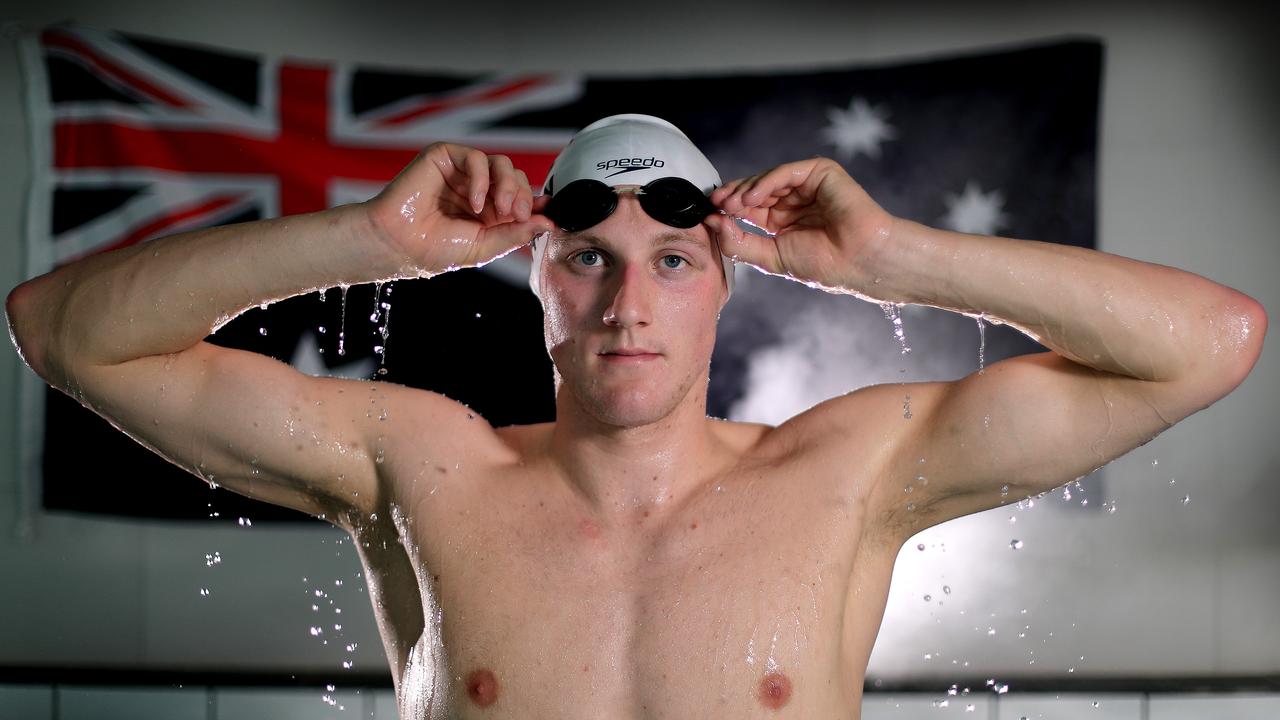
NO SLOWING DOWN FOR MACK
For someone who normally gets up before dawn to swim around 140 laps a day, the idea of finally getting to sleep in and stay on dry land for two months seemed pretty appealing to the laid-back Mack Horton.
That feeling lasted about a week.
A fish out of water, the reigning 400m freestyle Olympic champion quickly rediscovered how much he loves the gut-busting training sessions, saying “I’ve never been so desperate to swim in my life.”
He eased his way back in, but has increased his workload to 5km and hasn’t given a second thought to what might have been had the 400m gone ahead on Sunday as scheduled.
“I don’t even know what the day is meant to be to be honest,” he said.
“I think after we found out I just deleted everything out of my calendar like I don’t need that anymore and I haven’t really looked back.”
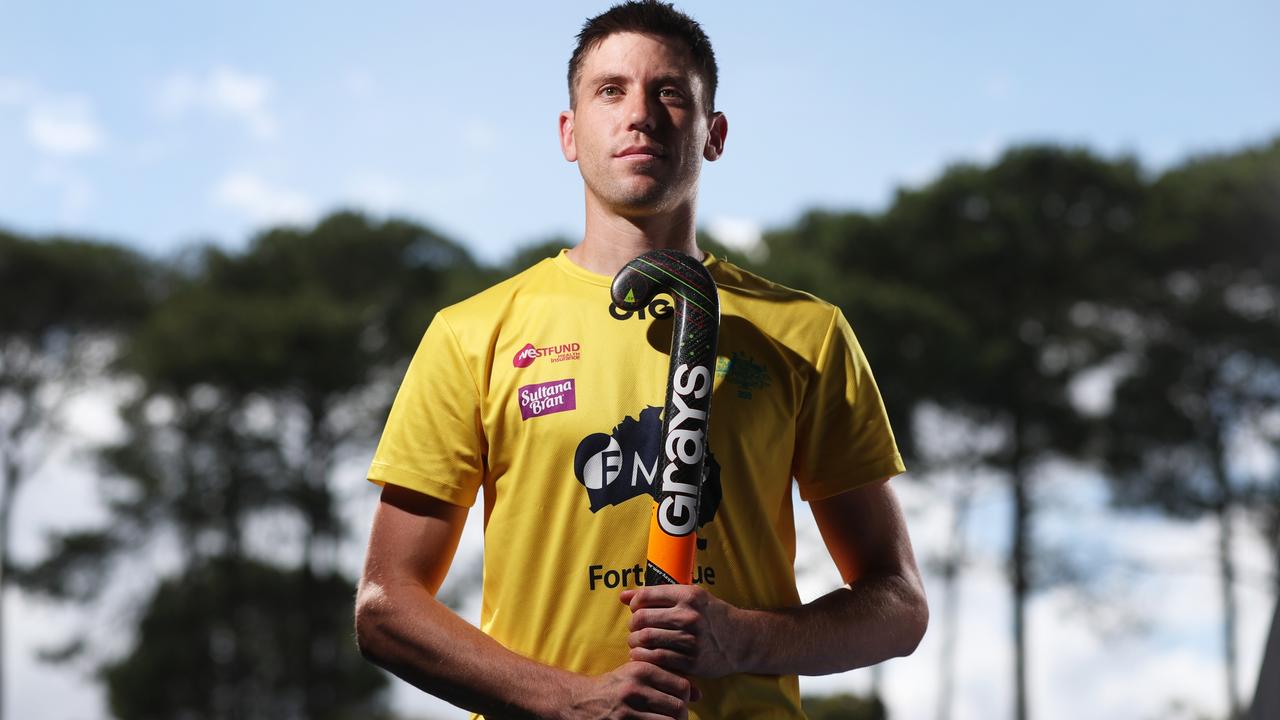
FAMILY FIRST FOR KOOKABURRA
It was meant to be Olympics Opening Ceremony day, and Kookaburras hockey captain Eddie Ockenden finds himself in the middle of a very different kind of intensive experience.
Packing up and moving his life, including two young children, aged 3 and 1, from Tasmania back to Perth on an overnight odyssey and two-week quarantine, to recalibrate for a fourth Olympics campaign.
As he prepares to rejoin the hockey program at headquarters in WA, Ockenden says the Kookaburras’ desperation to break their Olympics drought will be at an all-time high.
“No one ever takes it for granted, but you’ll just be doing absolutely everything now because you’ll know it was all up in the air, which has never happened before,” said Ockenden.

But right now, it’s just surreal thinking Friday was meant to be the start of the most intense fortnight in sport. Instead, he’s bracing for isolation with two kids.
“I think it’s very strange that you would be there ordinarily, you’d be as fit as you’ve been. You’d be ready to go,” he said. “Then on the other end of the scale, not much else is happening.”
The 33-year-old says he found it quite easily to get his head out of hockey and the moment the Olympics was off and the pandemic hit, he moved his young family back to the comforts of his home State, Tasmania.
“For me, I just went to the other end and completely forgot about it in some respects,” he said.
“I did a lot of trail running in Tassie, just to mix it up.
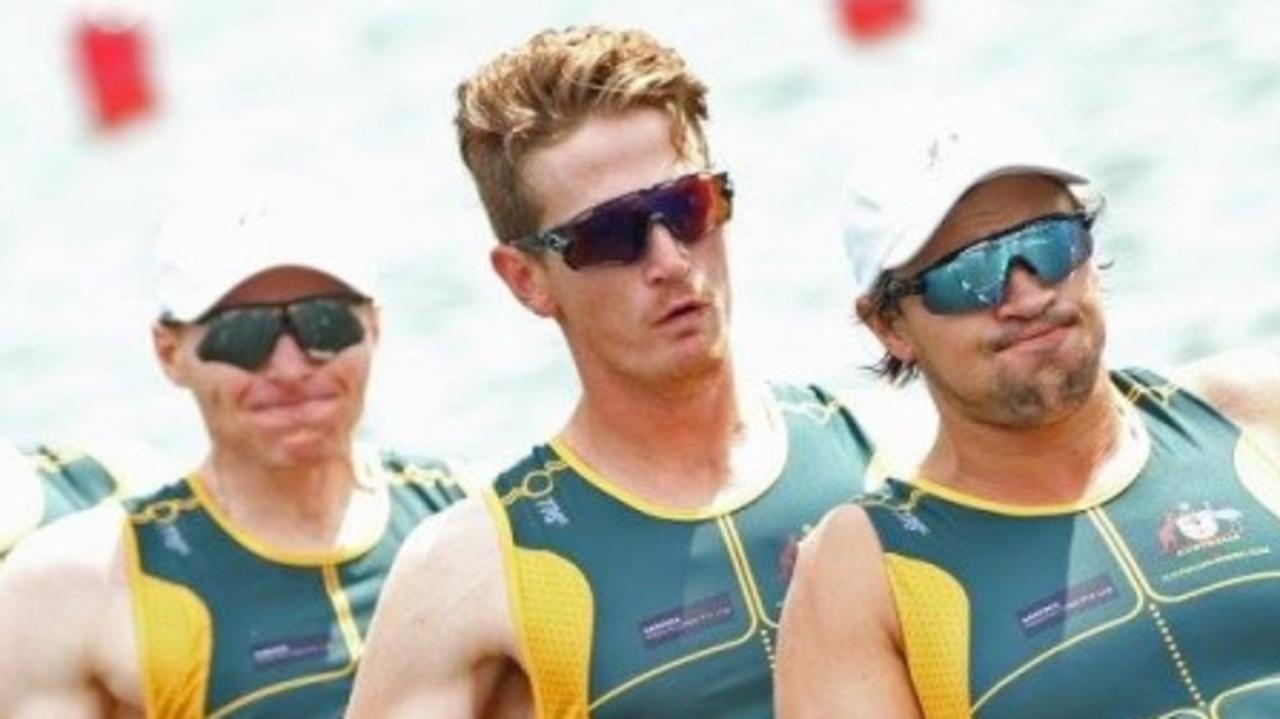
DOG WALKS PREP JACK FOR TOKYO
In the hills in and around Canberra are two of the best-walked dogs in Australia.
The pair of German Shorthaired Pointers are owned by men’s four powerhouse Jack Hargreaves and his housemate. They’re two rare beneficiaries of the 12-month delay to the Tokyo Games.
Because instead of hitting Tokyo Bay this week, Hargreaves is pounding the pavement in the latest addition to his Olympic training regimen.
While Canberra’s low COVID-19 levels have meant restrictions have eased to the point where the 26-year-old Hargreaves can hit up his favourite cafe, the freedom to act as normal still isn’t quite there – meaning dog walks have become a regular part of his daily life.
“They take a bit of exercising. We take them in the hills out here for an hour, or we take them on a mountain bike and run them through it,” Hargreaves explains.
“We did 20km on Friday, so that tired them out for about a day and a half.”
Hargreaves has kept a positive mindset throughout his rollercoaster 2020, embarking on 245km bike rides to keep his head clear as he grappled with the knowledge that his maiden Olympic campaign remained firmly up in the air.
“Maybe when we’re actually meant to be racing, it’ll probably sink in then,” he said.
“But I can’t say it has yet – there’s just bigger stuff going on in the world at the moment.
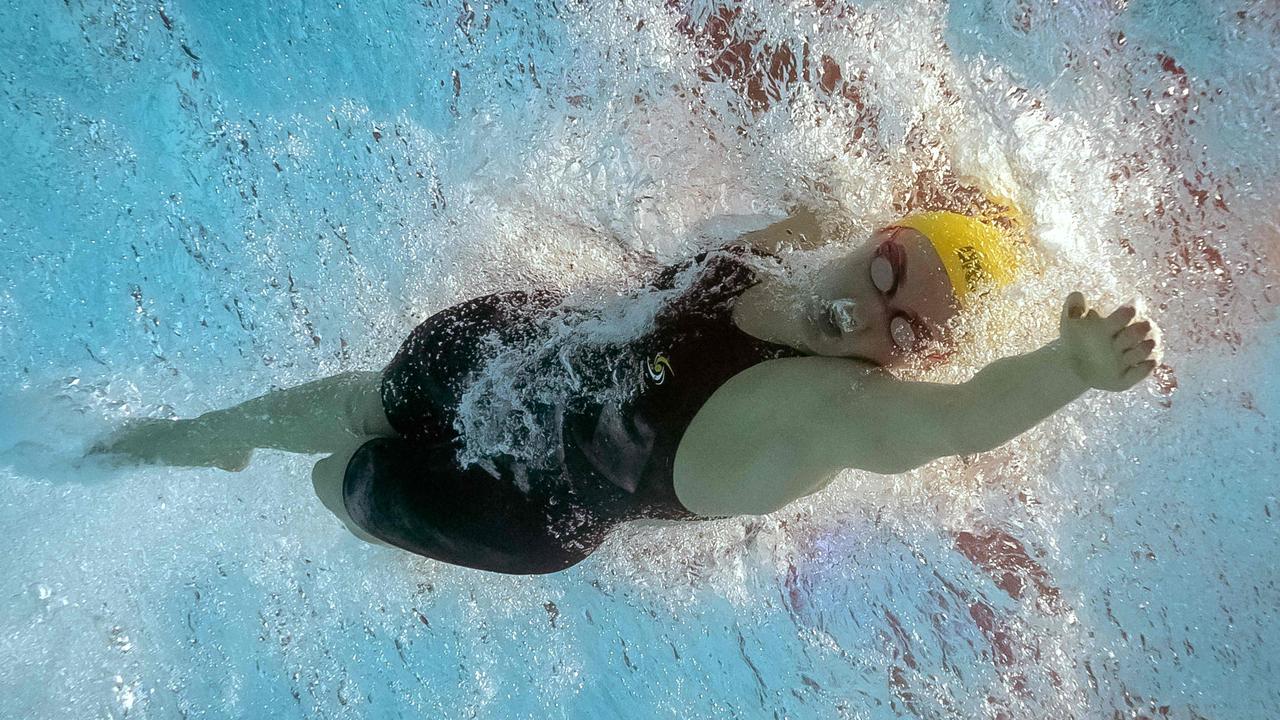
TITMUS SLEEPS THROUGH BAD NEWS
Ariarne Titmus was one of the last people to find out that the Tokyo Olympics had been postponed because on the day the news broke, she was fast asleep, enjoying a nap after a hard morning workout.
She woke up to see 30 messages on her phone, but it wasn’t until she called her coach and he told her training was cancelled that it really sank in.
Still a teenager, the idea of waiting another 12 months to make her Olympic debut was a crushing moment for the reigning world champion but she’s turned into a positive in the belief she will be even faster in 2021.
“Now kind of brings up all the emotions that I kind of got past, thinking about the fact I should have been racing at the Olympics,” she said.
“We still have our chance, it’s still going to hopefully happen next year so I try not to dwell on it. I think I’ve had my closure over the past few months and I’m just excited to get back to life as normal as possible.”
To mark the day, she will compete in a day of time trials on the Gold Coast with swimmers from around the country comparing times to find a winner.
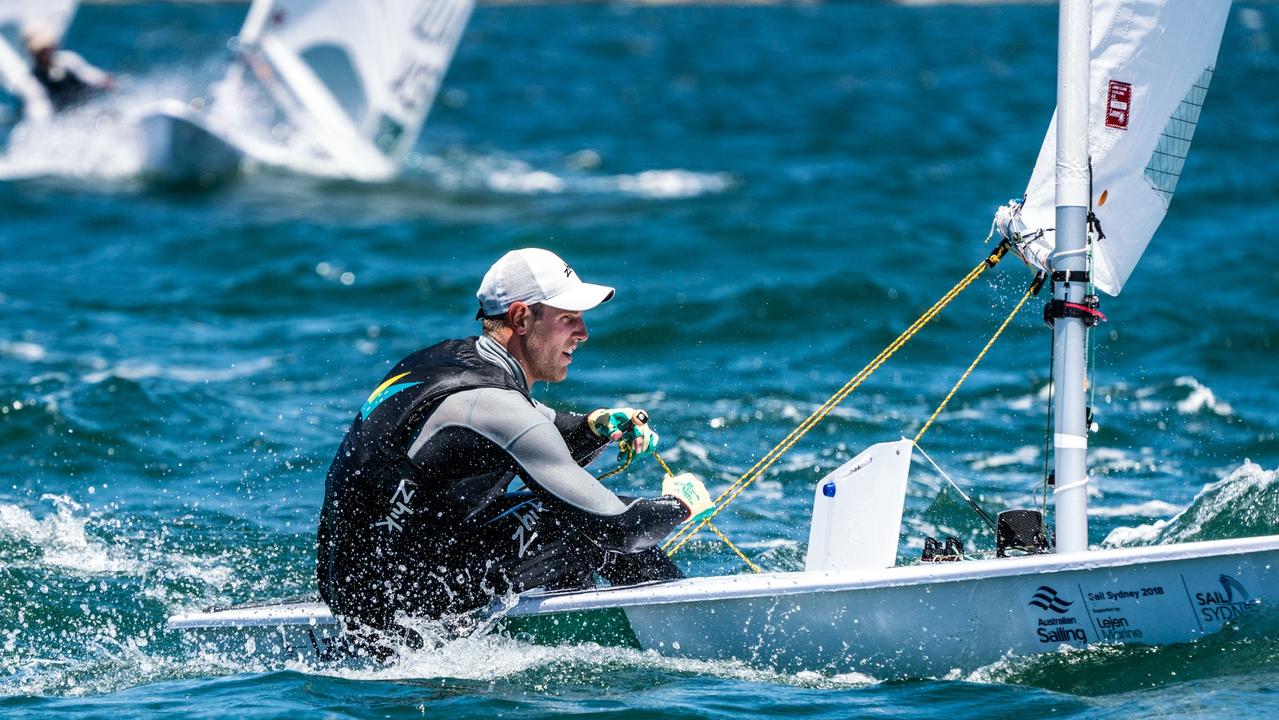
MONTH OFF JUST THE TONIC FOR WEARN
Matt Wearn all but had one foot on the plane to Europe before the call was made to cancel the lead-in season to the Tokyo Olympics.
After a big Melbourne summer, the mens laser racer was just one day from jetting across the world but has made the most of the opportunity to realign and is wasting no time in the boat with an eye to 2021.
“I initially took almost a month off out of the boat, just to take some time off, really,” he said.
“When Europe was called off, it was a good opportunity to relax a little bit and reassess where we were going.”
Wearn, 24, has been buzzing up and down the east coast hunting “Tokyo-like” conditions to train in, utilising areas like Coffs Harbour and outside the heads of Sydney.
“Training (under COVID) has been almost the same as it would normally,” he said.
“Obviously we’re by ourselves out on the boat, coaches separated and things like that, so we’re pretty fortunate.
“We were pretty happy with the plan we had in place and were starting to hit some form, so there was that disappointment that we couldn't go and compete and give everything. But at the same time, we’re looking at the positives and we’ve got another 12 months to work on some one percenters that we might not have been able to get on top of before this year, so just take it as it comes, I guess.”

WHEN IT ALL SUNK IN FOR ROW STAR
In a week where they were meant to be showcasing four years of hard work and brutal training, Australia’s elite women’s four crew were back on the water at their base camp in Penrith.
And keeping a sharp focus as much on their mental health as on their physical condition.
“It’s a pretty stressful time right now – we were thinking we were going to the Olympics, so it’s about doing some mindfulness, sitting down and really reflecting and making sure our mental health is OK,” crew member Lucy Stephan explained.
“Because for a lot of us this time is naturally going to shake us around.
“When I was in Nagambie [a temporary home on her boyfriend’s farm until last month] I wasn’t really thinking like that, because it was such a different atmosphere. But being back into routine and being back with the girls, that is when it started to actually hit home.
“It is a bit like ‘oh wow, we’ve got another year of this’.”
As the defending World Champions, Stephan’s foursome would’ve arrived in Tokyo as one of Australia’s strongest gold medal chances.
“My coach said to me when it all happened ‘we’ve gotten better each year, we’re getting faster and stronger, so it’s just an extra year to get better’,” Stephan said.
“That’s the way you look at it. It’s definitely been hard, but we’ve been lucky. In the big picture it could’ve been a lot worse.”
Originally published as What our Olympic athletes are doing to stay motivated for the postponed Tokyo games

